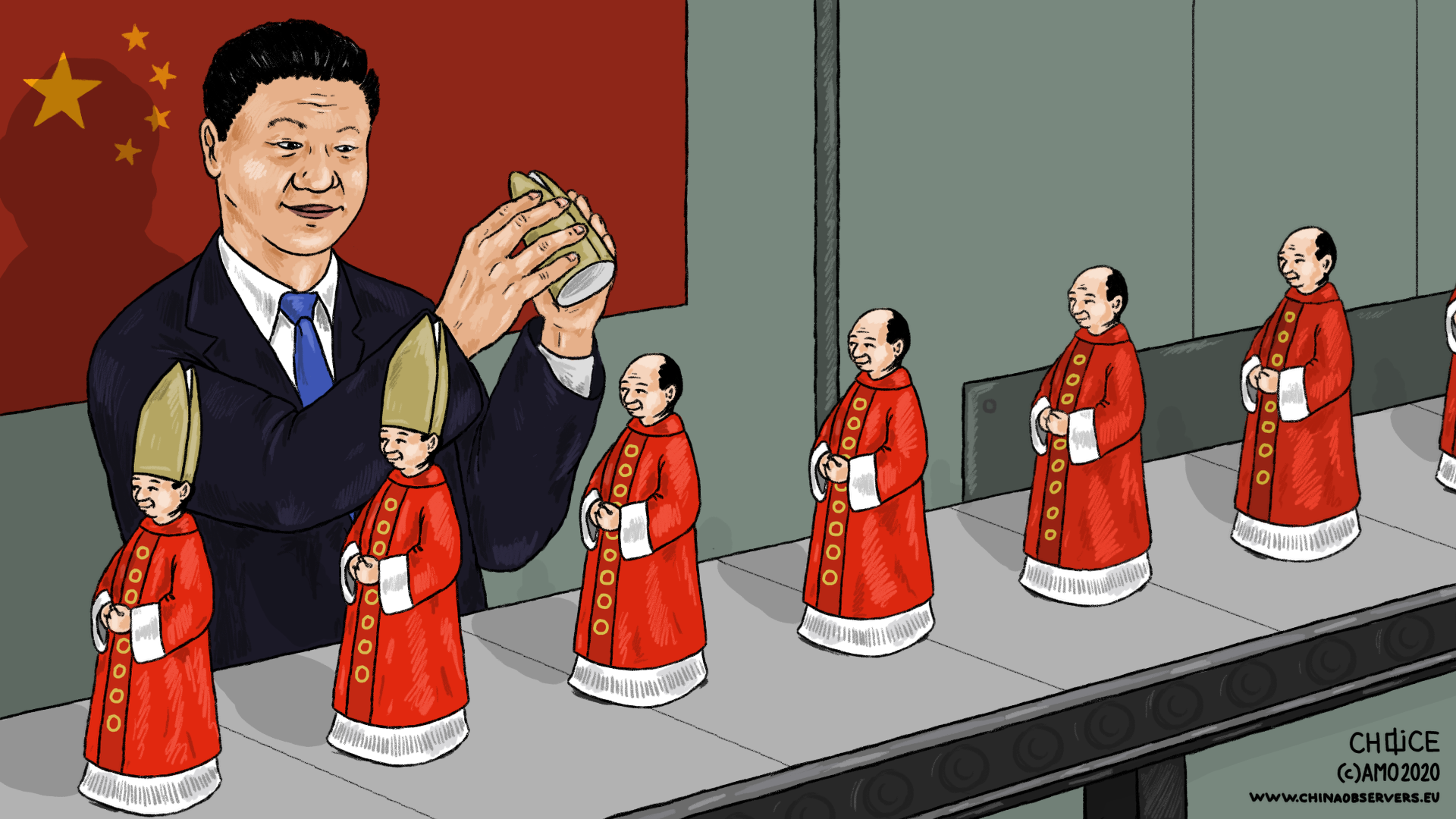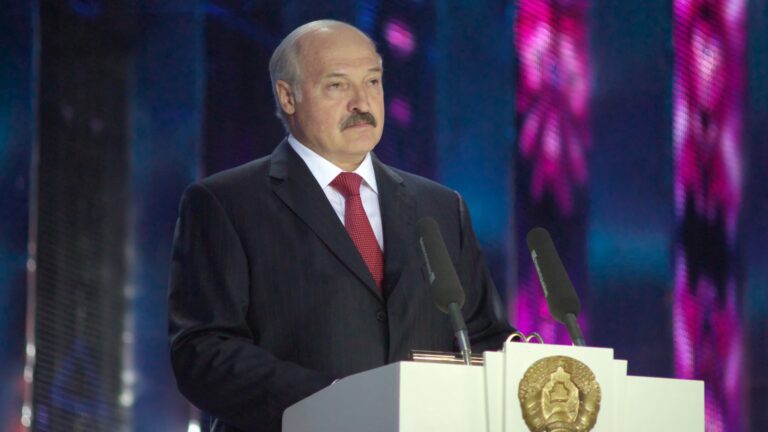
“I am sending you out like sheep among wolves. Therefore be as shrewd as snakes and as innocent as doves. Be on your guard; you will be handed over to the local councils and be flogged in the synagogues.”
Matthew 10:16-17
The Jesuits have a long and storied history in East Asia, stemming back to their militaristic past as “God’s soldiers”, obedient to the Pope, ready to serve no matter the hardship. In their missions to the Far East the order established fruitful ties within the Chinese imperial court and helped bridge disparate cultures and beliefs.
However, despite their apparent success, later missionaries would condemn their work as too accommodationist and ultimately heretical, leading to a rebuke from the Pope and an eventual withdrawal from China.
The shoe is very much on the other foot at the moment, as the first Jesuit Pope attempts to open relations with a very different sort of political entity in the People’s Republic of China. Different still is the question of whether accommodation in this case compromises the integrity of the pontiff himself.
The Blind Will See?
The current Bishop of Rome has, in fact, been a strong and frequent voice on the moral issues of the present day. Pope Francis has voiced opposition to injustices he sees imposed upon marginalized groups, gaining a reputation as a pontiff that is anything but shy to raise his voice.
His support of refugees in Europe, his scathing critiques of capitalism and economic inequality, rejection of nationalist and populist tendencies in Europe, and his support of same-sex unions have won him many admirers among liberal Catholics who have long lobbied for greater attention to these issues. Indeed, Francis’ latest encyclical’s frequent reference to breaking down a ‘culture of walls’ served as a not-so-subtle rebuke of the Trump administration in the US, wooing a similar demographic.
However, there is a glaring blind spot for the Holy See in China.
Whether it be the Hong Kong protests, the persecution of religious minorities (namely underground Catholics), or what can be best described as concentration camps in Xinjiang and Tibet — the silence is deafening.
Worse yet, the silence appears willful as voices from the ‘underground church’, that which seeks communion with Rome, have most certainly made their way to Francis since his signing of a provisional deal with Beijing in 2018.
Even that 2018 accord, which allowed both Beijing and the Holy See to provide judgment on bishop appointments jointly for the first time, showed distressing deviations from Pope Francis’ typical standard.
“On the civil and political level, Chinese Catholics must be good citizens, loving their homeland and serving their country with diligence and honesty, to the best of their ability,” the statement reads at one point.
One must wonder about the intended audience for such statements. Certainly, no such statement would be directed at Catholic communities in the US or Europe, for example.
Of course, just as the Jesuits did hundreds of years ago, there is a case to be made for some accommodation of Chinese practices counter to Catholic tradition in hopes that they can be remedied through dialogue. Indeed, the delicate diplomatic approach has been advocated for and endorsed by some prominent Catholic intellectuals.
Yet, in truth, it has only accelerated the creep of Party control over Church activity through the official ‘Chinese Patriotic Catholic Association’.
Misleading the Flock
Hong Kong may be the most clear-cut case of the inability of the Vatican and its head of state to converse with the Chinese Communist Party. According to Bishop Emeritus Joseph Zen, there is only one shepherd and it is one that wields a staff not to comfort the faithful, but to enforce compliance with Party policy.
“It is the religion of the Communist Party,” he writes on his blog. “The first divinity is the country, the Party, the Party leader.”
Nonetheless, negotiations between political delegations from both Beijing and the Vatican met for months without a single statement from the pontiff on issues of human rights, justice, and solidarity with persecuted populations such as those in Zen’s Hong Kong home. Without any caveat for these issues, the agreements were extended.
Further still, the terms are apparently ‘secret’, with some speculation aroused on both the Vatican’s continued recognition of Taiwan (despite assurances) as well as the potential financial terms given the recently revealed dealings of Cardinal Giovanni Becciu. Whether or not such terms exist, the lack of transparency is definitely not the ‘open windows’ transparency that John XXIII encouraged and indeed many hoped for after decades of successive scandals.
The Vatican justified the extension, again noting that dialogue and engagement was the best way to take steps toward normalizing the Catholic Church in China. The extension has certainly been endorsed by the state-appointed prelates, many of whom had been excommunicated by the Vatican previously.
“Those (from underground churches) who have not registered with the government should be encouraged to do more to rationalize the church in China and take the step bravely,” Vincent Zhan Silu, state-appointed bishop of the Funing archdiocese said in the state-sponsored Global Times.
Silu, excommunicated only about a decade ago, now holds the tacit endorsement of Pope Francis. Through this endorsement, the Pope has gone further than a simple omission, now serving as a tool to legitimize the state’s ‘religion’ and crush the underground Church that remains.
In this case, Francis’ flock may be unfortunately led toward further persecution and subservience to the ‘alpha-wolf’ of the state.
A Tale of Two Popes
Perhaps Pope John Paul II, whom Francis often declares an inspiration, understood this dynamic best.
“The culture and praxis of totalitarianism also involve a rejection of the Church. The State or the party which claims to be able to lead history towards perfect goodness, and which sets itself above all values, cannot tolerate the affirmation of an objective criterion of good and evil beyond the will of those in power, since such a criterion, in given circumstances, could be used to judge their actions. This explains why totalitarianism attempts to destroy the Church, or at least to reduce her to submission, making her an instrument of its own ideological apparatus.”
Pope John Paul II, Centesimus Annus
However, beyond a call for Pope Francis to learn from his predecessors, particularly those that have dealt with authoritarian regimes, is the call to remain steadfast on moral issues and eschew hypocrisy. In fact, Pope Francis need only heed his own words, uttered a matter of months ago.
“It is a time for integrity,” Francis said. “Either we are consistent with our beliefs, or we lose everything.”
Written by
Kevin Curran
kevincurranczKevin Curran worked as a Project Assistant at the Association for International Affairs (AMO). Previously, he was a Fulbright Scholar at Charles University, a visiting fellow at the International Sustainable Finance Centre, and a journalist for major US financial publications. His research interests include semiconductors, Central European media systems, and international capital market regulation.


